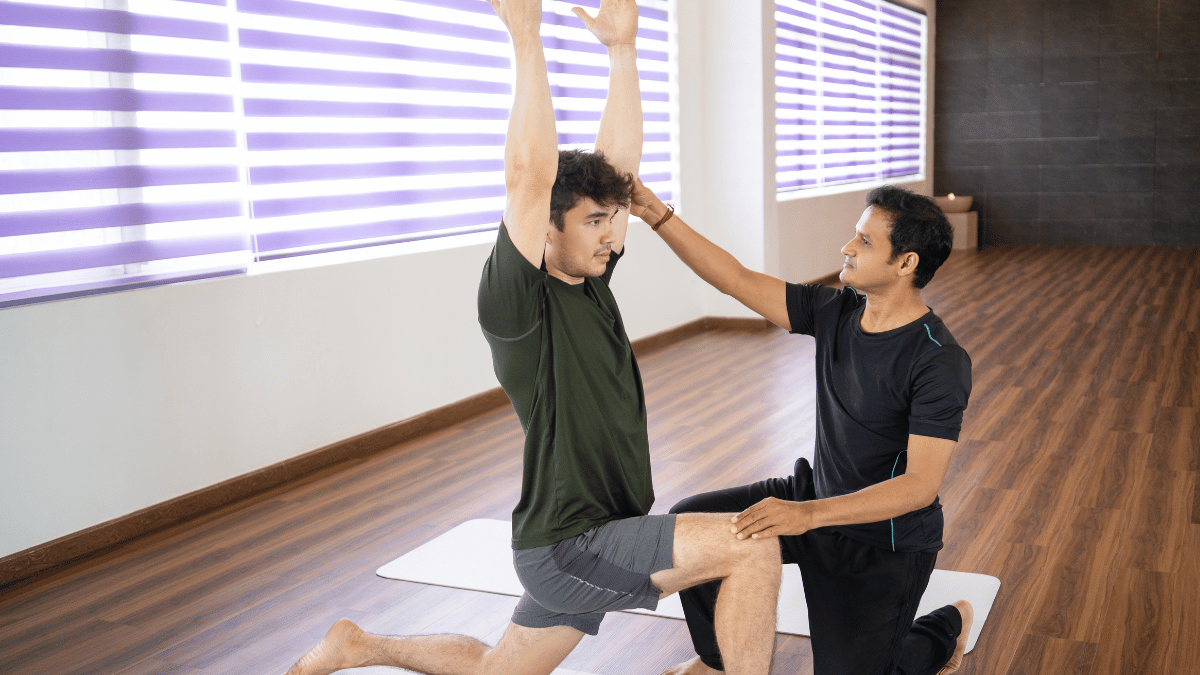Beginner Fitness Programs: Your Complete Fitness 101 Guide
Intro
Starting a fitness journey can feel overwhelming. Should you focus on cardio or strength training? How many days per week should you exercise? Which exercises are safe for beginners? With so many opinions and programs online, it’s easy to feel lost before you even begin.
That’s where beginner fitness programs come in. Designed with simplicity and structure in mind, these programs give you a safe and effective way to build strength, improve endurance, and create lasting habits. Think of them as Fitness 101 your roadmap for getting started without the confusion or guesswork.
The key is consistency and balance. A great beginner program introduces you to the fundamentals, keeps workouts manageable, and prevents burnout. If you’ve ever asked yourself how often you should be exercising, check out How Many Times a Week Should You Workout for guidance on frequency and recovery.
In this guide, we’ll walk through why structured beginner programs matter, the basics of Fitness 101, a sample plan you can start today, and how to avoid common mistakes.
Meet our Denver
Personal Trainers
TL;DR
If you’re new to exercise, beginner fitness programs are the best way to start. Think of them as Fitness 101 simple, structured routines that balance strength, cardio, mobility, and rest. Aim for 2–4 workouts per week, focus on compound movements like squats and push-ups, and progress gradually. Avoid doing too much too soon, prioritize recovery, and celebrate small wins along the way. Starting in a fitness-focused city like Denver makes it even easier to stay consistent
Why Beginner Fitness Programs Matter
When beginners jump into fitness without a plan, a few things often happen:
They try to do too much too soon, leading to injury.
They lack variety and plateau quickly.
They lose motivation because results aren’t immediate.
A structured beginner program eliminates these pitfalls. It provides:
Safety: Workouts tailored to your level, reducing injury risk.
Progression: Gradually increasing intensity to keep you improving.
Motivation: Small, measurable wins to keep you encouraged.
Starting with the right foundation sets the stage for long-term success.
“Starting your fitness journey is about building momentum, not perfection. Beginner programs give you the structure and confidence to keep moving forward one workout at a time”
Fitness 101 – The Basics Every Beginner Should Know
Setting Realistic Goals
Before you begin, define what you want out of fitness. Do you want to lose weight? Build strength? Improve flexibility? Setting clear, achievable goals helps you measure progress and stay motivated. Start with small wins like committing to three workouts per week before chasing bigger milestones.
Understanding the Main Types of Exercise
A balanced program includes:
Strength Training – Builds muscle, improves bone density, and boosts metabolism.
Cardio – Improves heart health and endurance.
Flexibility & Mobility – Keeps joints healthy and prevents stiffness.
Recovery – Rest days are just as important as workout days.
How Often Should Beginners Work Out?
One of the biggest beginner questions is frequency. According toHow Many Times a Week Should You Workout, most people benefit from 2–4 workouts per week when starting out. This allows enough consistency for results without overwhelming your body.
Key Elements of Beginner Fitness Programs
Warm-Up and Cool-Down
Always start with 5–10 minutes of light movement (like walking or dynamic stretches) and finish with stretching or foam rolling. This reduces injury risk and improves recovery.
Basic Strength Training Moves
Focus on compound movements that work multiple muscles at once:
Squats
Push-ups
Planks
Rows
These exercises build a strong foundation and can be scaled up as you improve.
Cardio Options for Beginners
Pick something you enjoy it doesn’t have to be running. Walking, cycling, rowing, or swimming are all excellent beginner-friendly cardio options.
Mobility and Flexibility Work
Incorporating yoga, stretching, or foam rolling keeps your body moving well and reduces stiffness from sitting all day.
Sample Beginner Fitness Program (Fitness 101 Plan)
Here’s a simple 4-day plan you can start with:
Day 1: Full-Body Strength
Squats – 3 sets of 10
Push-ups (or knee push-ups) – 3 sets of 8
Dumbbell or band rows – 3 sets of 10
Plank – 3 sets of 20–30 seconds
Day 2: Light Cardio
30 minutes walking, cycling, or elliptical at an easy pace.
Day 3: Mobility/Yoga Session
20–30 minutes of stretching, yoga flows, or foam rolling.
Day 4: Rest or Active Recovery
Gentle walking, stretching, or another light activity.
This program can be repeated weekly, with small progressions (like adding reps or resistance) as you get stronger.
Tips for Staying Consistent as a Beginner
Consistency matters more than intensity when you’re starting out. Here’s how to stick with it:
Schedule workouts like you would a meeting—non-negotiable.
Track progress using a notebook or app.
Celebrate small wins (like increasing push-ups from 5 to 10).
Find accountability with a friend, trainer, or class.
Be patient—results take time, but every workout builds momentum.
Avoiding Common Beginner Mistakes
Doing Too Much Too Soon
Overtraining is one of the quickest ways to burn out. Stick to moderate intensity until your body adapts.
Ignoring Recovery
Muscles grow during rest, not just workouts. Take at least one rest day per week.
Skipping Nutrition
Exercise alone won’t deliver results. Support your training with balanced meals and hydration.
Comparing Yourself to Others
Your journey is unique. Focus on your own progress rather than measuring against others.
Why Denver is a Great Place to Start Your Fitness Journey
If you’re beginning your fitness journey in Denver, you’re in luck. The city’s active lifestyle makes it easier to stay motivated. With countless trails, parks, gyms, and outdoor activities, beginners have endless opportunities to get moving.
And don’t forget the altitude advantage training a mile above sea level naturally challenges your cardiovascular system, giving you a boost when you stick with it.
Conclusion
Getting started with fitness doesn’t have to be confusing. Beginner fitness programs offer the structure, safety, and progression you need to build a strong foundation. By following Fitness 101 principles—balancing strength, cardio, mobility, and recovery you can create sustainable habits that last.
Remember, consistency is key. Start small, build gradually, and focus on your own progress. For more guidance on structuring your workouts, check out How Many Times a Week Should You Workout.
FGF’s Client
Success Stories
FAQ
How many days a week should a beginner work out?
Most beginners see progress with 2–4 workouts per week, allowing time for recovery.
What exercises are best for beginners?
Compound bodyweight movements like squats, push-ups, planks, and rows are safe and effective.
Do I need a gym membership to start?
Not at all, many beginner programs can be done at home with just your body weight or resistance bands.
How long should beginner workouts be?
Aim for 20–45 minutes per session. Consistency is more important than duration at first.
How soon will I see results?
Most people feel improvements in energy and mood within weeks, with visible results appearing in 6–8 weeks of consistency.
Nicholas Butler
Founder, Fight Gravity Fitness
Nick Butler is a passionate fitness professional who believes that better movement leads to a better life. As the founder of Fight Gravity Fitness, he specializes in helping busy professionals build strength, restore mobility, and enjoy an active, pain-free lifestyle. Nick holds certifications as a NASM Certified Personal Trainer, TRX Certified Instructor, Silver Sneakers Certified, and is CPR Certified. With years of experience and a focus on functional movement, Nick brings a supportive, practical approach to fitness that gets results without the hype.







